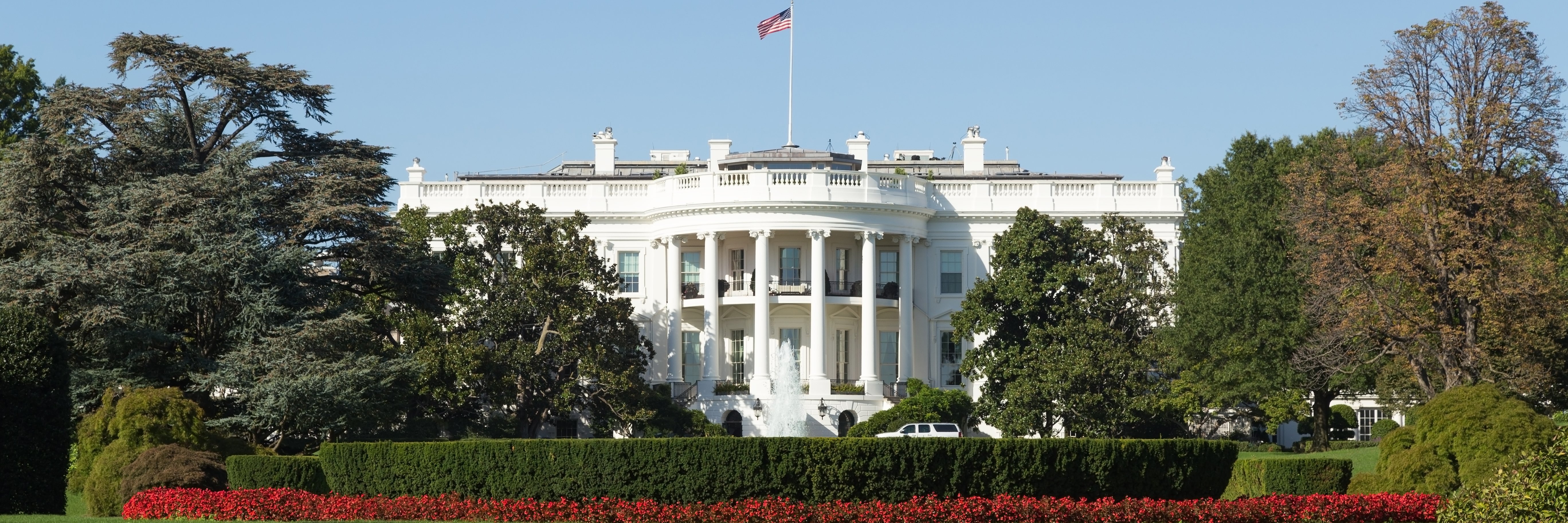 On Jan. 27, President Trump signed an executive order temporarily prohibiting visa holders and immigrants from seven majority-Muslim countries from entering the United States, as well as halting the admission of refugees. Many critics describe the order as effectively a partial Muslim ban , and the American Civil Liberties Union argues it is likely unconstitutional.
On Jan. 27, President Trump signed an executive order temporarily prohibiting visa holders and immigrants from seven majority-Muslim countries from entering the United States, as well as halting the admission of refugees. Many critics describe the order as effectively a partial Muslim ban , and the American Civil Liberties Union argues it is likely unconstitutional.
Recent polling, however, indicates that at least a plurality of Americans see no problem with it. A Reuters/Ipsos survey found that 49 percent of Americans agreed with Trump’s executive order, while 41 percent disagreed and 10 percent offered no opinion.
This is not the first time that government policies restricting the civil liberties of minority groups have been supported by many Americans. Japanese internment during World War II is one such example. In February 1942, a little over two months after the attack on Pearl Harbor, President Franklin Roosevelt issued Executive Order 9066 , which was titled “Authorizing the Secretary of War To Prescribe Military Areas.”
Much as Trump’s executive order does not actually contain the word “Muslim,” Roosevelt’s executive order did not include the word “Japanese.” However, the result of the order was that more than 100,000 people of Japanese ancestry — the majority of whom were U. S. citizens — were forcibly removed from their homes and placed in government camps.
In the midst of a war waged partially against the Japanese Empire, a large number of Americans supported such actions. In December 1942, for example, a Gallup survey asked whether “the Japanese who were moved inland from the Pacific coast should be allowed to return to the Pacific coast when the war is over.” Just 35 percent of Americans said that those in the internment camps should be allowed to return to their homes in the war’s aftermath. Of the 48 percent that said they should not be allowed to return, 63 percent wanted to “send them back to Japan” or “put them out of this country,” while 7 percent said just to kill them.
[ Steve Bannon is on the National Security Council. That sends a strong signal. ]
Fred Korematsu, a Japanese American citizen living in California, defied the government’s orders by staying in his home. Korematsu ultimately appealed his arrest all the way to the Supreme Court. In December 1944, the Supreme Court ruled 6 to 3 in Korematsu v. United States that the executive order was constitutional. Justice Hugo Black, writing for the majority, argued that Japanese internment reflected “real military dangers” and was not based on “racial prejudice.”
Such racial prejudice, however, was evident in the American public. A September 1944 National Opinion Research Center survey, for instance, found that 61 percent of Americans thought that whites should be prioritized in hiring decisions over Japanese Americans. Notably, 21 percent took the “moderate” position that each should receive equal opportunity, but only if the Japanese American candidate was a loyal U. S. citizen. Just 16 percent of respondents said Japanese Americans should have the same chance at a job as white people without offering such a qualification. Surveying the available polls, a 1945 article in Far Eastern Survey declared bluntly that “many people in the United States dislike and distrust all Japanese, Issei and Nisei alike, and there are indications that this feeling may continue to be translated into social and economic discrimination even after the war is over.”
[ Who believes in voter fraud? Americans who are hostile to immigrants. ]
In more recent decades, however, a growing number of Americans came to see Japanese internment not as a necessary means to achieve security, but rather as one of the greatest civil liberties violations of the 20th century. Calling Korematsu “one of the worst decisions in history,” Erwin Chemerinsky, Dean of the UC-Irvine School of Law, described Japanese internment as “an instance where the government infringed on the most basic liberties of Japanese-Americans, solely on the basis of race, without in any way making the nation safer.”
In 1976, President Gerald Ford issued a proclamation acknowledging that “not only was that evacuation wrong, but Japanese-Americans were and are loyal Americans.”
Korematsu’s conviction was finally vacated in 1983 by Judge Marilyn Hall Patel, then a California federal district court judge. The Supreme Court’s 1944 ruling, she wrote, “stands as a caution that in times of distress the shield of military necessity and national security must not be used to protect governmental actions from close scrutiny and accountability.”
In 1988, Congress passed the Civil Liberties Act, which was signed by President Ronald Reagan. The bill offered an official apology for Japanese internment and provided reparations to more than 80,000 survivors and their families.
Talking to University of Hawaii law students in February 2014, the late Supreme Court Justice Antonin Scalia said of Korematsu : “It was wrong, but I would not be surprised to see it happen again — in time of war. It’s no justification but it is the reality.” Scalia’s remarks find support in the history of American public opinion. Large numbers of Americans have often supported policies that, in retrospect, are recognized as serious violations of civil liberties.
This is particularly true when security concerns have racialized overtones, as was the case with the fight against Japan during World War II. Our contemporary conversation about refugees and immigration could benefit greatly from a recognition of this tendency. The history of Japanese internment indicates that public opinion — which can itself be shaped in part by how the questions are worded — is not always a guarantor of minority rights.
Steven White is a visiting assistant professor at Lafayette College.
© Source: https://www.washingtonpost.com/news/monkey-cage/wp/2017/02/02/u-s-public-opinion-supports-the-trump-immigration-order-it-backed-japanese-internment-camps-too/
All rights are reserved and belongs to a source media.
 В первом чтении Палата общин парламента Великобритании утвердила приведение в действие статьи 50 Лиссабонского договора о выходе страны из Европейского союза.
В первом чтении Палата общин парламента Великобритании утвердила приведение в действие статьи 50 Лиссабонского договора о выходе страны из Европейского союза. 

 1日のニューヨーク株式市場のダウ工業株30種平均は4営業日ぶりに反発し、前日比26・85ドル高の1万9890・94ドルで取引を終えた。IT大手アップルが大きく値を上げ、相場全体をけん引した。 ハイテク株主体のナスダック総合指数は27・86ポイント高の5642・65だった。 前日の取引終了後に市場予想を上回る好決算を発表したアップルは、約6%を超える大幅な上昇となった。前日まで下げていた金融株にも買い戻しが入り、ダウ平均は朝方に100ドルを超える大きな値上がりとなった。 米連邦準備制度理事会(FRB)はこの日の連邦公開市場委員会(FOMC)で追加利上げを見送った。ただ緩やかな利上げ継続の方針も示したことから株価は一時マイナス圏に沈み、その後も上値が重い状態で取引を終えた。(共同)
1日のニューヨーク株式市場のダウ工業株30種平均は4営業日ぶりに反発し、前日比26・85ドル高の1万9890・94ドルで取引を終えた。IT大手アップルが大きく値を上げ、相場全体をけん引した。 ハイテク株主体のナスダック総合指数は27・86ポイント高の5642・65だった。 前日の取引終了後に市場予想を上回る好決算を発表したアップルは、約6%を超える大幅な上昇となった。前日まで下げていた金融株にも買い戻しが入り、ダウ平均は朝方に100ドルを超える大きな値上がりとなった。 米連邦準備制度理事会(FRB)はこの日の連邦公開市場委員会(FOMC)で追加利上げを見送った。ただ緩やかな利上げ継続の方針も示したことから株価は一時マイナス圏に沈み、その後も上値が重い状態で取引を終えた。(共同)
 産経新聞 2/2(木) 11:18配信
産経新聞 2/2(木) 11:18配信
 今年の春闘の幕開けとなる連合と経団連の労使トップ会談が2日午前、東京都内で開かれた。トランプ米政権発足で国内景気や企業業績の先行きが不透明さを増すなか、労働側が要求する賃金体系の引き上げ(ベア)がどこまで広がるかや、長時間労働の是正など「働き方改革」が焦点になる。
今年の春闘の幕開けとなる連合と経団連の労使トップ会談が2日午前、東京都内で開かれた。トランプ米政権発足で国内景気や企業業績の先行きが不透明さを増すなか、労働側が要求する賃金体系の引き上げ(ベア)がどこまで広がるかや、長時間労働の是正など「働き方改革」が焦点になる。 
 1日、ホワイトハウスで、トランプ米大統領(右から2人目)立ち会いの下で宣誓し、国務長官に就任するレックス・ティラーソン氏(EPA=時事)
1日、ホワイトハウスで、トランプ米大統領(右から2人目)立ち会いの下で宣誓し、国務長官に就任するレックス・ティラーソン氏(EPA=時事) 
 Andrew Rudalevige (AR): Kevin, you recently wrote a piece in Politico called “ Six ways to curb a runaway presidency.” This dovetails nicely with a chapter I wrote for an upcoming volume on “The Imperial Presidency and the Constitution.” We share a concern about the shift of authority from the legislative branch to the executive branch — some of it taken by presidents, but much of it handed over by Congress. And we agree on various tools lawmakers could use to strengthen their hand in relation to the executive branch — for instance, making sure lawmakers have the expertise and resources they need to conduct meaningful oversight.
Andrew Rudalevige (AR): Kevin, you recently wrote a piece in Politico called “ Six ways to curb a runaway presidency.” This dovetails nicely with a chapter I wrote for an upcoming volume on “The Imperial Presidency and the Constitution.” We share a concern about the shift of authority from the legislative branch to the executive branch — some of it taken by presidents, but much of it handed over by Congress. And we agree on various tools lawmakers could use to strengthen their hand in relation to the executive branch — for instance, making sure lawmakers have the expertise and resources they need to conduct meaningful oversight. 
 Here we go: AstraZeneca ( AZN ) , ConocoPhillips ( COP ) , Estee Lauder ( EL ) , Merck ( MRK ) , New York Times ( NYT ) , Nokia ( NOK ) , Ralph Lauren ( RL ) , Royal Dutch Shell ( RDSA ) , Sony ( SNE ) , Deutsche Bank ( DB ) and Vodafone ( VOD ) are all reporting earnings ahead of the open.
Here we go: AstraZeneca ( AZN ) , ConocoPhillips ( COP ) , Estee Lauder ( EL ) , Merck ( MRK ) , New York Times ( NYT ) , Nokia ( NOK ) , Ralph Lauren ( RL ) , Royal Dutch Shell ( RDSA ) , Sony ( SNE ) , Deutsche Bank ( DB ) and Vodafone ( VOD ) are all reporting earnings ahead of the open. 
 An executive order aimed at boosting US cyber security was not signed on schedule as president Donald Trump turned his attention to legal challenges related to his controversial orders on immigration.
An executive order aimed at boosting US cyber security was not signed on schedule as president Donald Trump turned his attention to legal challenges related to his controversial orders on immigration. 
 On Jan. 27, President Trump signed an executive order temporarily prohibiting visa holders and immigrants from seven majority-Muslim countries from entering the United States, as well as halting the admission of refugees. Many critics describe the order as effectively a partial Muslim ban , and the American Civil Liberties Union argues it is likely unconstitutional.
On Jan. 27, President Trump signed an executive order temporarily prohibiting visa holders and immigrants from seven majority-Muslim countries from entering the United States, as well as halting the admission of refugees. Many critics describe the order as effectively a partial Muslim ban , and the American Civil Liberties Union argues it is likely unconstitutional. 
 In his first public remarks abroad as U. S. defense secretary, Jim Mattis is criticizing North Korea for provocative acts that require new consultations with Japan and South Korea.
In his first public remarks abroad as U. S. defense secretary, Jim Mattis is criticizing North Korea for provocative acts that require new consultations with Japan and South Korea. 

